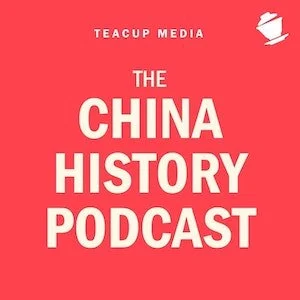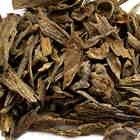Ep. 281 | The Taiping Rebellion (Part 2)
We're back with more of the Taiping Rebellion. In this episode, we trace the Taiping Rebels as they make their way from Yong'an in Guangxi all the way to the southern capital of Nanjing. As they make their way north and east towards western Jiangsu they grow in numbers and seize great amounts of weapons, silver, and boats.
Listen On Your Favorite Podcast Player
Terms in Episode
| Pinyin/Term | Chinese | English/Meaning |
|---|---|---|
| Tàipíng | 太平 | Heavenly Peace |
| Guǎngxī | 广西 | Province in southwest China just west of Guangdong |
| Yán’ān | 延安 | City in Shaanxi Province where the Communists regrouped following the Long March |
| Guìpíng | 桂平 | City in eastern Guangxi, under the administration of Guigang 桂港 City |
| Nánjīng | 南京 | Capital of Jiangsu Province. Also capital of the Taiping Heavenly Kingdom |
| Nánníng | 南宁 | Capital of Guangxi Province |
| Yǒng’an | 永安 | Site of an early battle during the Taiping Rebellion on April 8, 1852 |
| Hóng Xiùquán | 洪秀全 | 1814-1864, Chinese revolutionary and leader of the Taiping Rebellion. Claimed to be God's son and the younger brother of Jesus Christ |
| Féng Yúnshān | 冯云山 | 1821-1856, The Eastern King of the Taiping Heavenly Kingdom. He had a direct pipeline to the Lord God |
| Xiāo Cháoguì | 萧朝贵 | 1820-1852, The Eastern King of the Taiping Heavenly Kingdom. He had a direct pipeline to Jesus |
| Yáng Xiùqīng | 杨秀清 | 1821-1856, The Eastern King of the Taiping Heavenly Kingdom. He had a direct pipeline to the Lord God |
| Shí Dákāi | 石达开 | 1831-1863, The Wing King of the Taiping Heavenly Kingdom. One of the five key leaders of the Taiping's. More of him in Part 3 |
| Wéi Chānghuī | 韦昌辉 | 1823-1856, he North King of the Taiping Heavenly Kingdom during the Taiping Rebellion |
| Jīntián | 金田 | A town at the base of South of Thistle Mountain in Guangxi |
| Qín Rìgāng | 秦日纲 | Guangxi Hakka who joined up with Hong Xiuquan early and reported directly to Hong. |
| Tuánliàn | 团练 | Local militias formed to supress peasant rebellions |
| Sìchuān | 四川 | Province in southwest China |
| Shǎnxī | 陕西 | Province in north China. Capital ios Xian |
| Húběi | 湖北 | Province in central China. Capital is Wuhan |
| Guǎngdōng | 广东 | Southernmost province in China (not including Hainan) |
| Húnán | 湖南 | Province in central China. Capital is at Changsha |
| Chángshā | 长沙 | Capital city of Hunan province |
| Huáng Cháo | 黄巢 | 835-884, a Chinese smuggler, soldier, and rebel, and is most well known for being the leader of a major rebellion that severely weakened the Tang dynasty. |
| Táng Dynasty | 唐朝 | Dynasty that ran 618-907 |
| Zēng Guófān | 曾国藩 | 1811-1872, Chinese statesman and military general of the late Qing dynasty. He is best known for raising and organizing the Xiang Army to aid the Qing military in suppressing the Taiping Rebellion and restoring the stability of the Qing Empire. |
| Lǐ Hóngzhāng | 李鸿章 | 1823-1901, Chinese politician, general and diplomat of the late Qing dynasty. He quelled several major rebellions and served in important positions in the Qing imperial court, including the Viceroy of Zhili, Huguang and Liangguang. |
| Zuǒ Zōngtáng | 左宗棠 | 1812-1885, Hunan-born Chinese statesman and military leader of the late Qing dynasty, immortalized in modern times as the inspiration behind General Tso's Chicken |
| Yuán Shìkǎi | 袁世凯 | 1859-1916, Chinese military and government official who rose to power during the late Qing dynasty and eventually ended the Qing dynasty rule of China in 1912, later becoming the Emperor of the Empire of China (1915–1916) |
| Guìlín | 桂林 | City in Guangxi province |
| Quánzhōu | 全州 | City in Guangxi province |
| Quánzhōu | 泉州 | Historic coastal city in Fujian province |
| Fújiàn | 福建 | Coastal province in south China |
| Nán Wáng | 南王 | The Southern King (Feng Yunshan) |
| Jiāng Zhōngyuán | 江忠源 | 1812-1854, a scholar and soldier from Hunan who fought for the Qing and against the Taiping Heavenly Kingdom during the Taiping Rebellion. |
| Chēnzhōu | 郴州 | City in southernmost Hunan province |
| Hakka | 客家 | Hakka, a Han Chinese subgroup whose ancestral homes are chiefly in the Hakka-speaking provincial areas of Guangdong, Fujian, Jiangxi, Guangxi, Sichuan, Hunan, Zhejiang, Taiwan, Hainan and Guizhou. |
| Wǔhàn | 武汉 | Mega-city in Hubei province comprised of Hankou, Hanyang and Wuchang |
| Dòngtíng Lake | 洞庭湖 | a large, shallow lake in northeastern Hunan Province, China. It is a flood basin of the Yangtze River |
| Yángzǐ River | 扬子江 | China's longest river |
| Guǎngzhōu | 广州 | Capital of Guangdong province, also referred to as Canton |
| Yuèzhōu | 岳州 | See below, former name for the city of Yueyang |
| Yuèyáng | 岳阳 | formerly known as Yuezhou, is a prefecture-level city on the eastern shores of Dongting Lake and Yangtze in the northeastern corner of Hunan Province in the People's Republic of China. |
| Hànkǒu | 汉口 | One of the cities that makes up Wuhan |
| Wǔchāng | 武昌 | One of the cities that makes up Wuhan |
| Húběi | 湖北 | City in central China |
| Jiǔjiāng | 九江 | a prefecture-level city located on the southern shores of the Yangtze River in northwest Jiangxi Province |
| Ānqìng | 安庆 | a prefecture-level city in the southwest of Anhuiprovince |
| Zhènjiāng | 镇江 | City on the Yangzi River |
| Shāng Dynasty | 商朝 | Ancient dynasty that ran 1600-1046 BCE |
| Tàibó | 泰伯 | Lived during the 12th century BCE, eldest son of King Tai of Zhou and the legendary founder of the State of Wu. |
| Zhū Yuánzhāng | 朱元璋 | Founder of the Ming Dynasty, known also as The Hongwu Emperor |
| Míng Dynasty | 明朝 | Imperial dynasty that ran 1368-1644 |
| Xiánfēng Emperor | 咸丰帝 | Emperor from 1850-1861. Had to deal with the Taiping Rebellion his entire reign |
| Niǎn Rebellion | 捻乱 | an armed uprising that took place in northern China from 1851 to 1868, contemporaneously with Taiping Rebellion (1851–1864) in South China. The rebellion failed to topple the Qing dynasty, but caused immense economic devastation and loss of life that became major long-term factors in the collapse of the Qing regime in the early 20th century. |
| Tiānjīng | 天京 | The city of Nanjing. It was renamed Tianjing after the Taiping Rebels took the city of Nanjing |
| Hóngwǔ emperor | 洪武帝 | See Zhu Yuanzhang (above) |
| Jiāngsū | 江苏 | Coastal province in central China |
| Xiàng Róng | 向荣 | 1801-1856, a Chinese military general and politician |
| Qíshàn | 岐山 | 1786-1854, Mongol noble and official of the late Qing dynasty, best known for negotiating the Convention of Chuanbi on behalf of the Qing government with the British during the First Opium War of 1839–42. |
| Miáo | 苗族 | a group of linguistically-related peoples living in Southern China and Southeast Asia, which are recognized by the government of China as one of the 56 official ethnic groups. The Miao live primarily in southern China's mountains, in the provinces of Guizhou, Yunnan, Sichuan, Hubei, Hunan, Guangxi, Guangdong and Hainan. |
| Guìzhōu | 贵州 | Province north of Guangxi |
| Huí | 回 | An East Asianethnoreligious group which is predominantly composed of Chinese-speaking adherents of Islam who are distributed throughout China, mainly in the northwestern provinces of the country and the Zhongyuan region. |
| Gānsù | 甘肃 | Province in northwest China just west of Shaanxi and east of Xinjiang |
| Yúnnán | 云南 | Province in southwest China |
| Xīnjiāng | 新疆 | Province in northwest China just west of Gansu |
| Punti-Hakka Clan Wars | 土客械斗 | a conflict between the Hakka and Cantonese people in Guangdong, China between 1855 and 1867. The wars were fierce around the Pearl River Delta, especially in Toi Shan of the Sze Yup counties. The wars resulted in roughly a million dead with many more fleeing for their lives. |
Resources
Books
God’s Chinese Son: The Taiping Heavenly Kingdom of Hong Xiuquan by Jonathan Spence
The Search for Modern China, 2nd Edition by Jonathan Spence
A History of Chinese Civilization by Jacques Gernet
Fall of Imperial China by Frederick Wakeman
The World of a Tiny Insect: A Memoir of the Taiping Rebellion and Its Aftermath by Zhang Daye

















his all took place in the final moments of the Warlord Era, right after the Central Plains War. This act perpetrated by warlord Sun Dianying 孙殿英 epitomized the venality of these men.